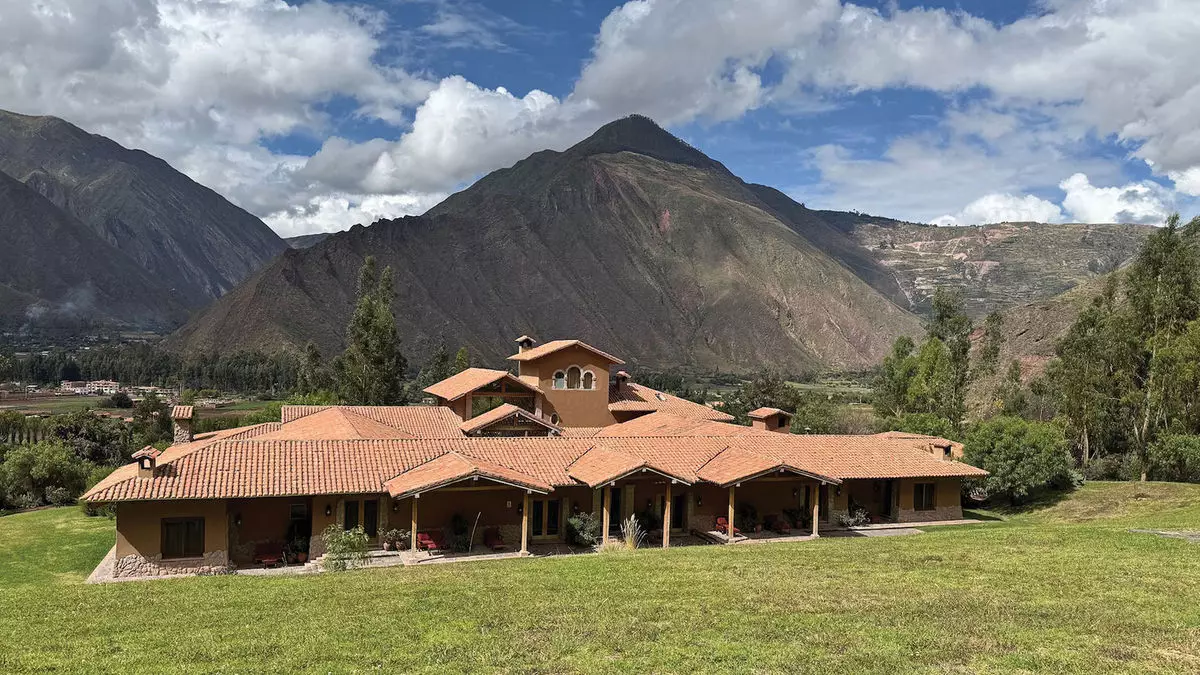Peru is a country that melds ancient history with modern elegance, creating a tapestry of experiences that appeal to both the curious traveler and the discerning adventurer. One of the most compelling aspects of exploring this South American jewel is engaging directly with its cultural traditions, such as the centuries-old craft of making chicha de jora—corn beer. While recreating such a process might sound straightforward, it demands patience, skill, and a deep respect for tradition. Attempting to make chicha at home without proper guidance could result in more than just a failed experiment; it might jeopardize your safety or, at best, leave you with a mess and an unsatisfying brew.
What makes these traditional activities truly enriching is their integration into world-class eco-lodges that emphasize authenticity and cultural preservation. These lodges not only serve as luxurious sanctuaries but also as portals into Peru’s vibrant local heritage. The experience of participating in a local craft like chicha-making becomes a meaningful journey rather than a superficial tourist attraction—offering insights into the indigenous ways of life that have persisted for centuries.
Luxury Amidst History: The Fusion of Comfort and Tradition
Consider a stay at a high-end property nestled in the Sacred Valley or near Machu Picchu, where history and modern comfort collide seamlessly. Such hotels are more than mere accommodations—they are cultural institutions that celebrate the region’s past while providing contemporary amenities. For instance, a hacienda-style hotel set at nearly 10,000 feet elevation frames breathtaking mountain vistas with architecture inspired by the colonial era, complemented by handcrafted decor, traditional textiles, and artefacts that narrate local stories.
These resorts often operate on sustainable philosophies, sourcing ingredients from organic farms using age-old techniques. Here, you can savor quinoa, native potatoes, and corn—foods integral to Peruvian identity—crafted into dishes that honor local culinary traditions. Engaging with these ingredients through activities like tea-savoring or traditional cooking classes enhances the cultural immersion, transforming a simple meal into an educational experience.
The luxuries extend beyond food. Spacious suites with fireplaces, terraces overlooking the sacred landscape, and personalized services such as turndown routines with hot water bottles ensure that comfort remains paramount. To claim that these hotels are mere indulgences would be reductive; rather, they are gateways to understanding Peru’s history, ecology, and culture in a setting that nurtures the soul, not just the senses.
Sustainable Luxury: Leading the Way in Eco-Conscious Hospitality
One of the most inspiring facets of Peru’s high-end ecotourism scene is its commitment to sustainability. Hotels like Inkaterra exemplify this ethos by pioneering climate-positive initiatives and seeking to minimize environmental impact without sacrificing luxury. Recognized by the United Nations as the world’s first climate-positive hotel brand, Inkaterra integrates conservation into every aspect of their operations.
Their properties are deliberately situated within or near protected areas, such as the lush Amazon basin or cloud forests, allowing guests to witness pristine ecosystems firsthand. These places often feature organic gardens, solar power, and waste management systems that reinforce their eco-friendly stance. They invite visitors to participate in conservation activities, from planting trees to learning about local flora and fauna—immersive experiences that deepen visitors’ appreciation of Peru’s fragile biodiversity.
What sets these hotels apart isn’t just their devotion to ecological preservation but their reinvention of luxury as a force for good. Staying at such a property doesn’t mean sacrificing comfort; it redefines what it means to travel responsibly. Guests are encouraged to see their visit as an act of cultural exchange and environmental stewardship, fostering a more meaningful connection with the land and its people.
The Cultural Heartbeat of Peru: From Historical Sites to Local Life
Close proximity to iconic archaeological sites such as Machu Picchu and Cuzco’s historic center enriches the visitor experience, but true understanding comes with engaging with local communities. Staying at boutique hotels like La Casona in Cuzco offers a glimpse into colonial histories intertwined with indigenous traditions. Their interiors, filled with handcrafted furnishings and period architecture, serve as living museums of Peruvian artistry.
Beyond the walls of these historic properties, the charm of small villages, colorful markets, and traditional festivals brings authenticity to the journey. Sampling local delicacies such as ceviche—recently recognized by UNESCO as part of the world’s intangible cultural heritage—becomes more than a culinary adventure; it becomes an entry point into Peru’s complex cultural identity.
Moreover, participating in activities like weaving workshops, craft markets, or local dance performances allows visitors to connect personally with the communities. These experiences foster respect, understanding, and appreciation for Peru’s diverse cultural mosaic, transforming a vacation into an act of cultural preservation.
Challenging the Tourist’s Comfort Zone: Why Authenticity Sometimes Comes With Risks
While the allure of these extraordinary experiences is undeniable, one must approach them with caution and self-awareness. Recreating traditional practices like chicha-making at home might seem appealing but is fraught with uncertainty. Without proper facilities, ingredients, or knowledge, such attempts could lead to disappointment—or worse, health hazards. The same applies to any authentic activity outside a controlled, knowledgeable environment.
Travelers should embrace the guidance of seasoned hosts and facilitators, understanding that these traditions are delicate and require respect and expertise to be truly appreciated. The essence of such experiences lies not just in their outcomes but in the process itself—the patience, the learning, and the respect for centuries of cultural wisdom.
Permitting oneself to step outside comfort zones is valuable, but it should be done thoughtfully, with an awareness of limitations. Genuine cultural immersion isn’t about copying or superficial participation; it’s about listening, learning, and honoring the traditions of those who have preserved them over generations. When approached with humility, these experiences become not only memorable but transformative.
—
Note: This article emphasizes that engaging deeply with Peruvian culture and environment enhances travel experiences, but it also underscores the importance of respectful participation and responsible tourism. Authenticity brings richness, yet it demands humility and careful consideration—especially with practices rooted in tradition and ecological sensitivity.


Leave a Reply